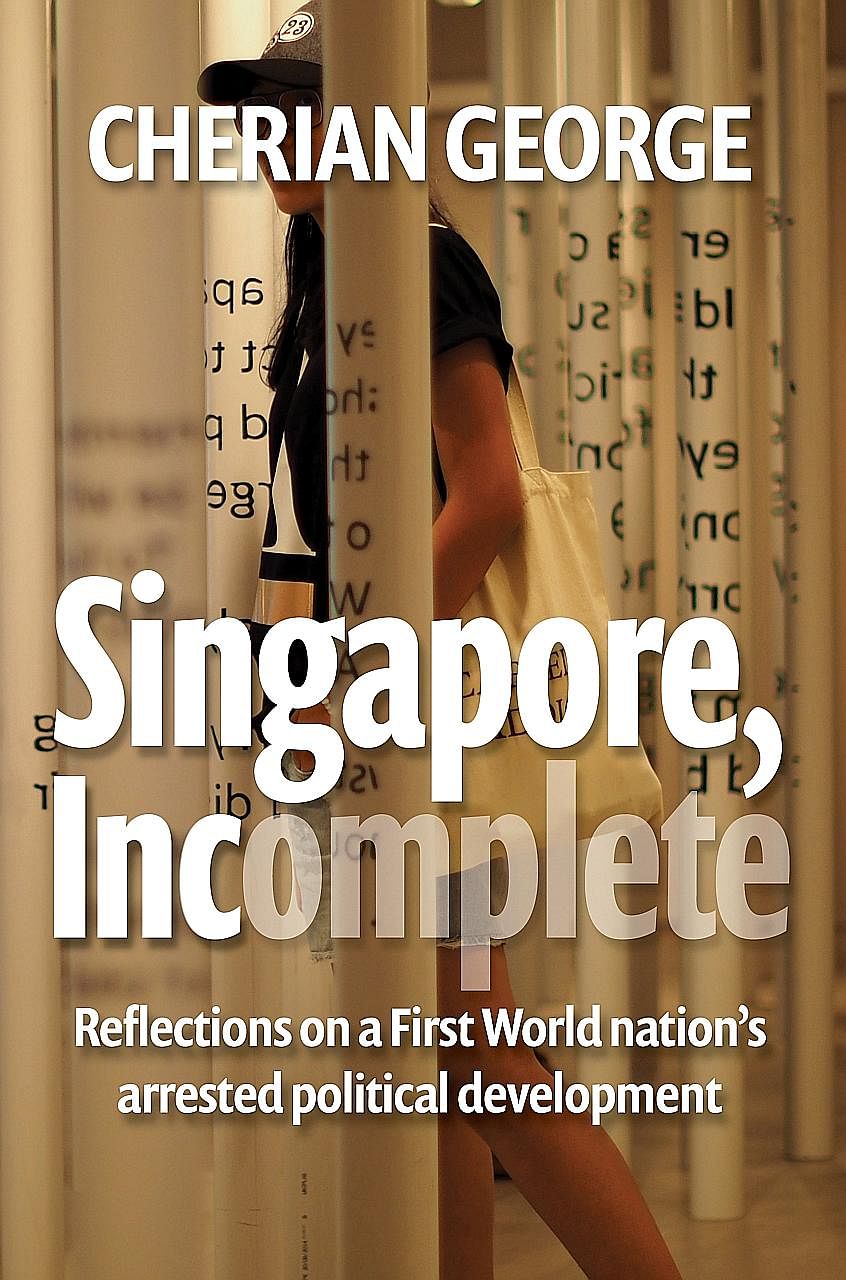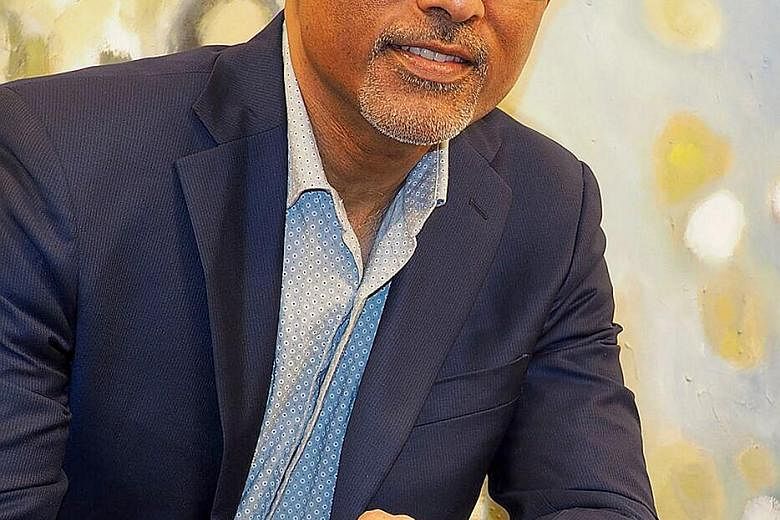Winter has come - to the sunny isle of Singapore.
This is how journalism academic and political observer and, yes, fan of the HBO series Game Of Thrones Cherian George characterises the state of political debate here.
In a new book of essays on Singapore politics, titled Singapore, Incomplete, he argues that after the 2011 general election, "a chill... descended" here, affecting domains such as civil society, the media, the Internet, academia and the arts.
Not everyone will agree with his thesis but the author of best-seller Singapore: The Air-conditioned Nation (2000) notes that while the Government has loosened up on the opposition - for instance, in reducing the number and size of group representation constituencies - it has "hobbled" the other groups.
The post-GE2011 playbook included "significant humanising of social and economic policy, but also a hardening of its posture in political and civic space", writes Professor George, 52.
Speaking to The Straits Times ahead of the book's launch here on Dec 9, he points to developments such as new laws that constrain websites on public affairs, legal action against netizens, tighter control of the mainstream media, and academics dabbling in activism who say it is now tougher to get jobs.
One example he cites: Prime Minister Lee Hsien Loong suing blogger Roy Ngerng for defamation in 2014. Mr Lee won and the courts awarded him $150,000 in damages.

Doesn't somebody whose reputation is sullied have the right to sue, as a matter of longstanding principle in Singapore politics? He does, Prof George says - but adds that settling such debates through suits alienates some Singaporeans.
He notes: "This weapon used to be reserved for professional politicians and big influential media.
"What has changed is the lowering of the threshold, the feeling that even relatively unknown individuals need to be given this treatment."
The new 216-page paperback contains 28 essays on topics such as the presidential election, xenophobia and a "fog of fear".
The book also contains personal anecdotes, including an accounting of his own taste of "fear", causing him to withdraw as an academic expert in 2014 from a trial blogger Alex Au was facing for contempt of court. Prof George frankly admits he feared jeopardising his appeal of a decision by his employer Nanyang Technological University (NTU) not to award him tenure.
Over the phone from Hong Kong, where he and his wife, former Straits Times deputy editor Zuraidah Ibrahim, now live, Prof George declines to say more about leaving NTU, where he taught journalism from 2004 to 2014.
The former Straits Times journalist failed to get tenure twice due to what he calls political pressure. NTU president Bertil Andersson later disputed this. The case is perceived by some to stem from Prof George's comments over the years criticising the Government.
In the book, he hazards a guess on why he was blocked: "I was heading the only undergraduate journalism department in Singapore and was therefore in a position to influence future journalists."
When asked, NTU said it has nothing to add to previous statements.
After what he termed "a forced exit" from NTU in 2014, Prof George joined the journalism department at Hong Kong Baptist University. This year, he received tenure and was made full professor.
Asked what his longer-term plans are and whether he intends to return to Singapore for good some day, he replies wryly: "I have felt no need to make plans for the future."
He now flies back to Singapore, where his family remains, at least once every two months.
This - and his meetings with Singaporeans who pass through Hong Kong - helps him maintain a good sense of developments here and the pulse of Singaporeans.
Prof George acknowledges many Singaporeans "aren't bothered by strictures on civil society, journalism or other democratic institutions, as long as you look after their basic needs", but that gave him even more motivation to write the book - so as to persuade them.
But if Singaporeans aren't concerned, why should the ruling People's Action Party change?
Prof George's larger argument in the book is that it is in the long-term interest of both Singapore and the PAP for political debate to become more vibrant.
First, it reduces the chances of government leaders developing blind spots like the ones that, he argues, led to policy missteps - and voter unhappiness - in the run-up to the 2011 election.
Second, he adds, debate is good training for the real competition - which Singapore is grappling with out there in the world.
"Learning to adapt to freewheeling domestic political contention isn't something our leaders cannot afford to do," he avers.
"Top football clubs in the European Champions League wouldn't be half as good if they didn't face strong opponents in their domestic competitions. Every wannabe Real Madrid needs a Barcelona."
He says he is not holding his breath on the message getting through in the short run to the PAP - which is needed to turn winter into spring. But he also believes that in the long run "an internally-reformed PAP is still one of the best-case scenarios for Singapore".
He adds: "The PAP is not just another party, a potted plant that can easily be substituted with another.
"It's a movement intimately tied to state and society, like a banyan that grew out of a crack in a building and has now spread so much that it's hard to rip it out without damaging its host."


